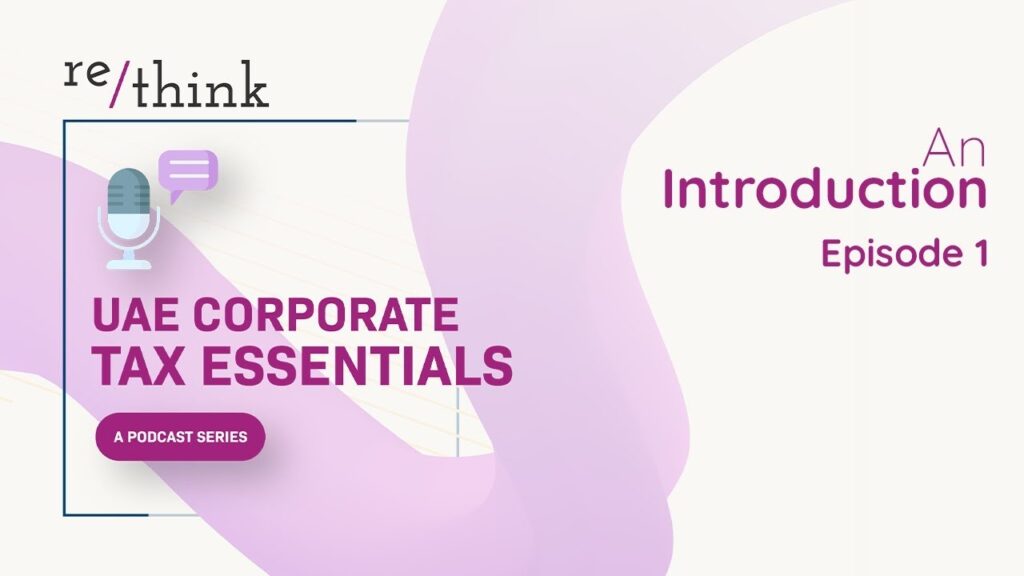Introducing Corporate Tax in the UAE: What You Need to Know
Welcome to the first episode of Rethink’s Mini Podcast Series, where we unpack the essentials of corporate tax (CT) and what its introduction means for businesses in the UAE.
In this inaugural episode, Neil Guthrie(Head of Finance & Tax at Rethink) is joined by Keerthi Voodimudi (Director of Tax) to provide a straightforward overview of the new UAE corporate tax regime and its implications for business leaders, CFOs, and stakeholders.
What’s Covered in This Episode:
- What is Corporate Tax (CT)?
- Why it’s being introduced in the UAE
- Who it applies to
- Cost implications and business impact
- Steps you should take now to prepare
Why Is Corporate Tax Being Introduced?
Following the rollout of VAT in 2018 and the Economic Substance Regulations (ESR), corporate tax is the UAE’s next step in aligning with international tax standards. It supports the OECD’s BEPS (Base Erosion and Profit Shifting) initiative, which aims to prevent multinational companies from shifting profits to low-tax jurisdictions.
Understanding BEPS
BEPS refers to strategies used by multinational enterprises to reduce taxable income in high-tax jurisdictions and shift profits to countries with little or no tax—even when there is minimal economic activity there. The UAE’s CT framework includes transfer pricing rules to counteract this.
Key Features of the UAE Corporate Tax Regime
Kirti Moody explains that the UAE corporate tax law, published on 9 December 2022, is closely aligned with international tax principles. Highlights include:
- A standard 9% tax rate on taxable profits exceeding a threshold (expected to be AED 375,000).
- Zero percent tax on profits up to the threshold.
- Free zone entities may benefit from a 0% tax rate, subject to specific conditions.
- A separate regime will apply to multinational groups with global revenues exceeding €750 million (approx. AED 3 billion), aligned with Pillar Two of the OECD’s framework.
“Although 9% is a significant additional cost, it remains one of the most competitive corporate tax rates in the world.”
Who Is Subject to Corporate Tax?
Corporate tax will apply to:
- Mainland and Free Zone entities
- Incorporated businesses
- Self-employed individuals conducting business in the UAE
- Foreign entities with ongoing, regular business operations in the UAE
While called “corporate tax,” the law is better described as a business tax, with definitions mirroring those found in UAE VAT regulations.
Why Should Businesses Prepare Now?
While the earliest tax returns may not be due until late 2025, your tax period could begin as early as June 2023 or January 2024, depending on your financial year. That means planning and compliance must begin before your next financial year starts.
“Corporate tax will have far-reaching impacts, and addressing them requires months of planning and action.”
Early preparation gives companies a strategic advantage, allowing them to identify risks, plan finances, and ensure compliance before enforcement begins.
Final Thoughts
This episode serves as a general introduction. Over the coming weeks, the Rethink team will delve deeper into specific CT-related issues, from transfer pricing to financial reporting implications, compliance obligations, and sector-specific considerations.
Stay tuned for the next episode, where we’ll explore just how deeply CT affects every aspect of your business.
Follow us for updates or reach out to our team at Rethink if you have questions about preparing your business for the UAE corporate tax.
Until next time, stay informed and stay compliant.



